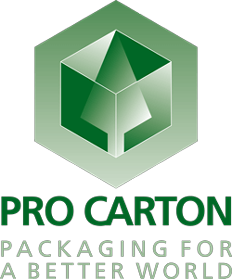Pro Carton, the European Association of Carton and Paperboard Manufacturers, argues that in order to meet the ambitious targets of the EU Green Deal successfully, we need to raise awareness among legislators and businesses of the complexity of packaging requirements of consumers in different usage occasions. On 30 November 2022, the European Commission presented its proposal to amend the Packaging and Packaging Waste Regulation (PPWR). Although the objectives were well-intentioned, the decision to focus on the implementation of reusable packaging raised some concerns.
On the surface, promoting reusable packaging to eliminate single-use packaging seems a logical decision. After all, it can help divert more packaging from landfills by reducing the number of packages on the market and increasing the number of use cycles. However, for this regulation to be successful, there needs to be consumer involvement.
A new report by McKinsey, entitled ‘The potential impact of reusable packaging’, found that imposing strict reusable packaging targets by 2030 will have a serious impact on the EU’s environmental footprint and on the competitiveness and resilience of the European economy. Assessing the switch to reusable packaging for take-away catering in Belgium by 2030, the study revealed a potential increase in CO2 emissions of 140-160% and a possible increase in costs of 80-130%, mainly due to transport and cleaning. One thing is certain: consumers want to know that the systems and policies in place are optimal for the environment and for their pockets. One could argue that this is not the case with reusable packaging.
There are also a number of negative implications for society that could be detrimental to consumer acceptance, which is essential to ensure high return and turnover rates. These include the implementation of systems that require a radical change in behaviour. In Germany, for example, fast food outlets have instituted deposit systems for reusable packaging. It is not well received at this stage. The near future will show the acceptance. And acceptance is key to reach the targeted return rates. This also creates potential complications in terms of price – a deposit for a take-out meal can raise the price of a meal by up to EUR 10 – and food hygiene. How can consumers be assured that reusable packaging returned uncleaned after being left for days at home or in the car has actually been washed effectively?
Fast-food owners and operators know the best packaging solutions for their customers’ needs. The requirements will be different for in-house and take-away meals as well as for in-town and out-of-town locations. Scientific knowledge and consumer needs will have to be included in the decision-making process. There is no one-size-fits-all solution, the combination of different options will give the best result.
Our recently commissioned European consumer research in Germany also indicates a preference for single-use packaging in many use cases. More than three quarters of respondents believe that recyclable and biodegradable cardboard packaging is better for the environment, two thirds said they would prefer brands to invest in biodegradable and recyclable cardboard containers, while more than 60% would prefer to dispose of their packaging for recycling, rather than store, rinse and return reusable plastic packaging to a collection point. Ignoring such obvious preference is fatal and will likely lead to low acceptance levels.
Pro Carton appeals that legislators will listen to consumer demands and review the approach developed to prepare the ground for a successful transition to a circular economy. Easy-to-recycle single-use packaging, such as cardboard, the packaging material with the highest recycling rates and the one preferred by consumers, must play a decisive role alongside the reusable system. It is “both and”, not “either or” which will deliver the best results for consumers and for our environment.




